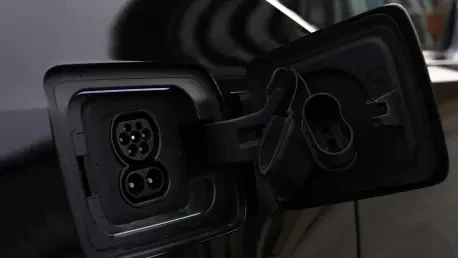As electric vehicles (EVs) continue to surge in popularity across the UK and beyond, the challenge of managing the resulting spike in electricity demand has become a pressing concern for energy providers and policymakers alike, especially with projections indicating that EVs could account for a significant portion of total electricity consumption in the coming decades. Innovative solutions are essential to prevent overwhelming the grid during peak hours. Enter artificial intelligence (AI), a game-changing technology that promises to revolutionize EV charging by optimizing schedules, slashing costs for consumers, and ensuring grid stability. Recent research from a prominent energy institute has demonstrated how AI-managed charging systems can align with renewable energy availability, offering a glimpse into a more sustainable and cost-effective future for transportation electrification. This groundbreaking approach not only addresses immediate infrastructure challenges but also sets the stage for long-term energy resilience.
Transforming Energy Management with AI
Optimizing Charging for Cost and Efficiency
The integration of AI into EV charging systems has shown remarkable potential to reduce financial burdens for households while enhancing energy efficiency. A comprehensive study involving thousands of UK households revealed that automating charging to occur during off-peak hours—when renewable energy generation is often high and grid demand is low—resulted in a staggering 42% drop in peak electricity use. This strategic timing translated into significant savings, with participants seeing their annual electricity bills decrease by an average of £650, equivalent to roughly $887. By leveraging real-time data on wholesale electricity prices and grid conditions, AI ensures that charging happens at the most cost-effective times, benefiting both consumers and energy providers. This approach proves that technology can bridge the gap between affordability and sustainability, making EV ownership more accessible to a broader population without compromising environmental goals.
Enhancing Grid Stability Through Smart Scheduling
Beyond cost savings, AI-driven charging plays a pivotal role in alleviating pressure on electrical grids, a critical concern as EV adoption accelerates. During the same trial, it became evident that shifting charging to off-peak windows dramatically reduced the risk of grid overload, particularly during high-demand periods like early evenings after work hours. The intelligent scheduling not only smoothed out demand curves but also demonstrated high user acceptance, with over half of the participants trusting the automated system without manual overrides. This trust is vital for scaling such solutions, as it indicates that consumers are willing to embrace technology that prioritizes both convenience and systemic benefits. Moreover, the alignment of charging with periods of surplus renewable energy further supports the transition to a cleaner energy mix, ensuring that the growing EV fleet contributes to, rather than hinders, decarbonization efforts across the sector.
Addressing Future Challenges with Innovative Solutions
Meeting Rising Demand with Strategic Tools
With EV adoption projected to drive a substantial increase in electricity demand—potentially accounting for 15-20% of the UK’s total consumption by 2050—the need for strategic management tools has never been more urgent. Without intervention, simultaneous charging during peak times could strain infrastructure to the breaking point, leading to costly upgrades and potential blackouts. AI offers a proactive solution by dynamically adjusting charging schedules based on grid needs and offering discounted rates during specific off-peak windows, such as late at night. Trials of such systems, including one in the UK with a tailored tariff, showed that incentivizing off-peak charging through lower prices can achieve near-perfect compliance, with some parallel studies in the US recording up to 98% of charging loads shifted away from peak hours. This adaptability is key to accommodating future growth in EV numbers while maintaining a stable and reliable energy supply for all users.
Boosting Consumer Engagement for Wider Adoption
A critical factor in the success of AI-managed charging lies in engaging consumers effectively, especially those less inclined to adopt smart energy solutions. Research has highlighted that targeted communication strategies, such as personalized email campaigns, can significantly increase participation rates, even among harder-to-reach demographics. In one instance, such efforts boosted adoption of a smart tariff by 3.4%, demonstrating the power of clear, proactive outreach in overcoming barriers to technology uptake. This finding underscores the importance of not only developing cutting-edge tools but also ensuring that users understand and trust them. As the electrification of transport continues to gain momentum, fostering this trust through education and transparent benefits will be essential to scaling AI-driven solutions, ultimately creating a more inclusive energy ecosystem that supports both individual needs and collective sustainability goals.
Reflecting on a Sustainable Path Forward
Looking back, the journey of integrating AI into EV charging systems marked a significant turning point in addressing the dual challenges of cost and grid strain. Groundbreaking trials across regions like the UK and the US showcased how technology could transform energy consumption patterns, delivering substantial savings and bolstering infrastructure resilience. The high levels of consumer trust and engagement observed during these initiatives provided a strong foundation for future advancements. Moving ahead, stakeholders must prioritize the expansion of such smart charging programs, investing in both technological innovation and public awareness campaigns to ensure widespread adoption. Policymakers and energy providers should also explore incentives that encourage off-peak usage while continuing to refine AI algorithms to better predict and manage demand. By building on these early successes, the energy sector can pave the way for a seamless transition to an electrified transport future, balancing economic and environmental priorities with precision and foresight.









